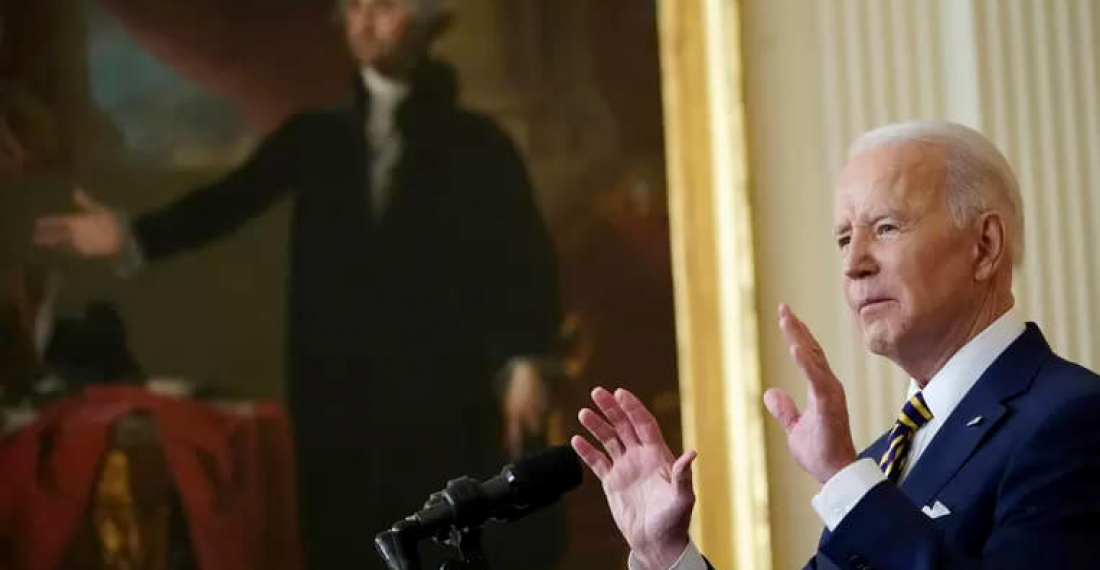The President of the United States, Joe Biden, considers a Russian invasion of Ukraine a realistic possibility in the short-term. Biden made the statement on Wednesday (19 January) during a press conference marking his first anniversary in the White House. Biden however generated some confusion when he said that a “minor incursion” by Russia would elicit a lesser response from the US and its allies.
According to Biden, it remains unclear if Russia will proceed with a full-scale military invasion and occupation. “I think he will invade the country”, the US president said of his Russian counterpart Vladimir Putin. “The severe economic sanctions that come with that will be a disaster for Russia, if they invade Ukraine”, Biden said. The president said that the severity of those sanctions depends on “how big the invasion” of Ukraine will be.
The latter statement caused a furore of criticism in Ukraine, as well as from members of the Republican Party. Senator Ben Sasse said that with his statements Biden gave “a green light to Putin to invade Ukraine”. One Ukrainian official told CNN it “gives the green light to Putin to enter Ukraine at his pleasure”.
Biden later sought to clarify that he was referring to a non-military action, such as a cyberattack, that would be met with a similar reciprocal response, and that if Russian forces cross the Ukrainian border, killing Ukrainian fighters, “that changes everything”.
Shortly after the press conference, the White House press secretary, Jen Psaki, corrected the president’s remark. “Any Russian military move in Ukraine”, she said, “would provoke a tough response”.
The United States and its allies and Russia have been at loggerheads for months, amid escalating tensions around Ukraine. Biden's statements come at a time when Russia has stationed an estimated 100,000 troops near the Ukrainian border. Putin denies that his country is planning to invade Ukraine. Russia says NATO is a threat to its security and is demanding security guarantees from the US and NATO that Ukraine will never join the military alliance. Russia also wants NATO to stop operating in countries that joined the alliance after 1997. This includes all Eastern European member states.
On Wednesday (19 January), the US Department of State confirmed that it has authorised Lithuania, Latvia and Estonia to send US-made missiles and other weapons to Ukraine. The United Kingdom is said to have agreed to a similar arrangement. It is not clear exactly which weapons are involved. US Secretary of State Antony Blinken is meeting his Russian counterpart Sergey Lavrov in Geneva on Friday (21 January) for diplomatic talks. On Thursday Blinken was in Berlin where he met his counterparts from France, germany and the UK ahead of his meeting with Lavrov.






